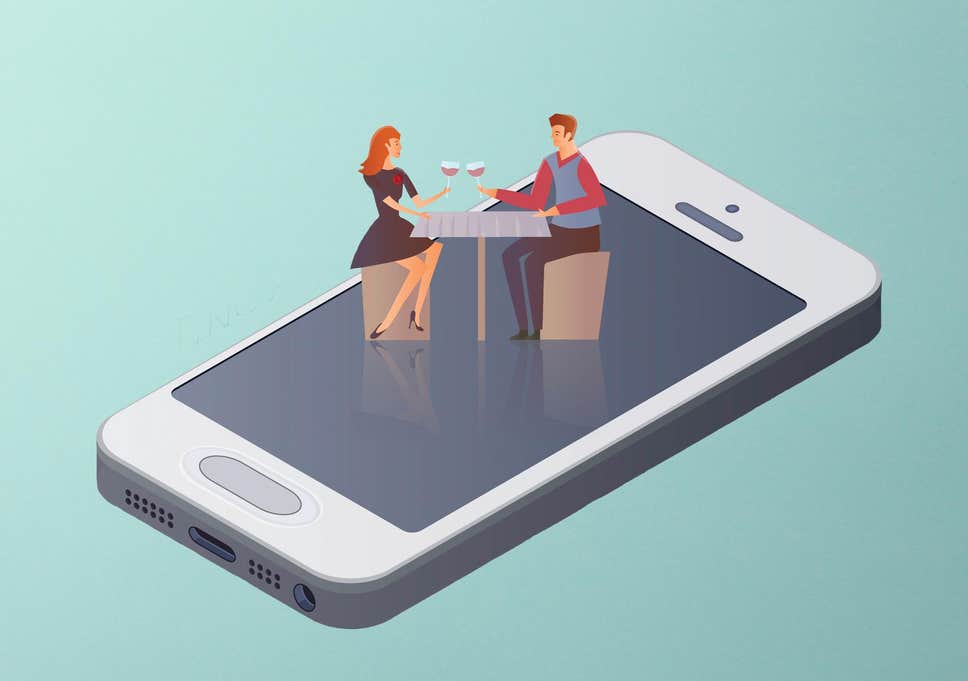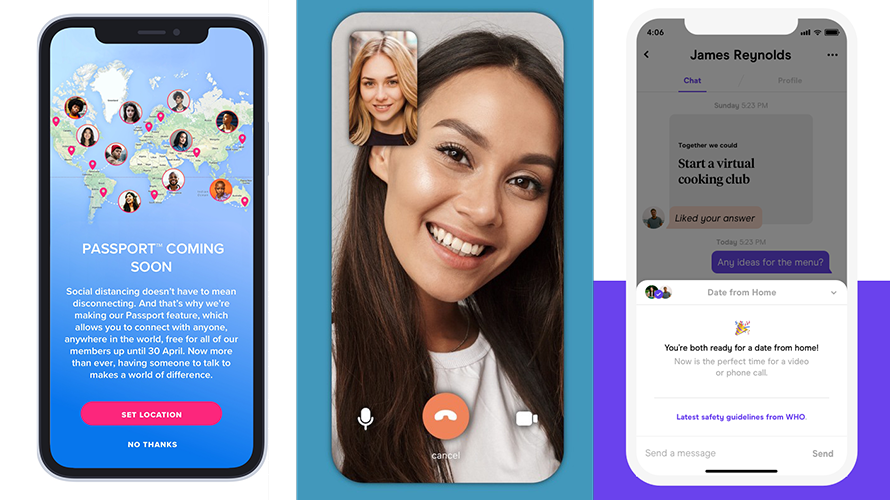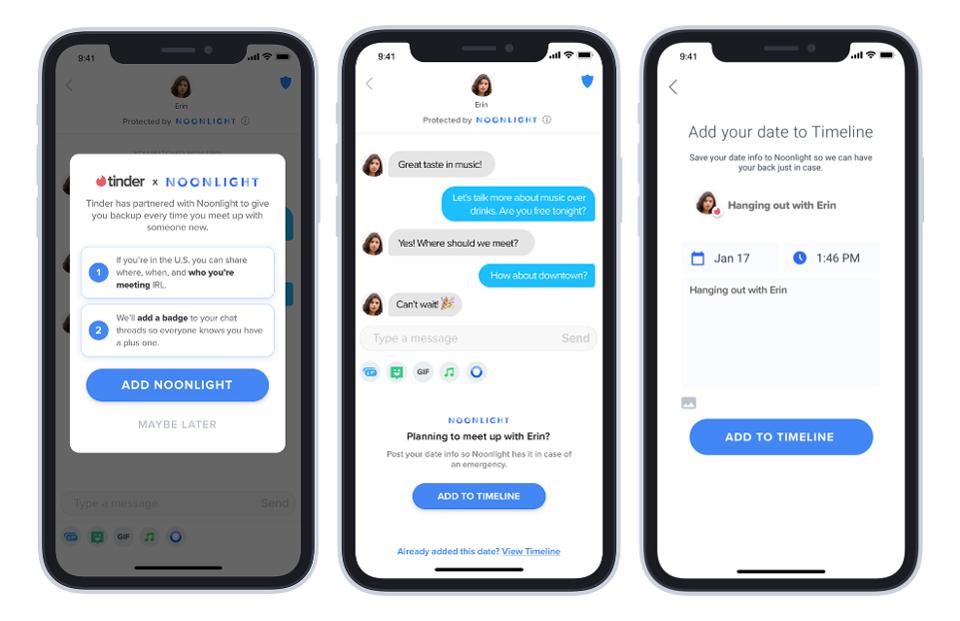How have Bumble, Tinder, and the rest of the online dating world changed during the coronavirus pandemic?

A few minutes every morning is all you need.
Stay up to date on the world's Headlines and Human Stories. It's fun, it's factual, it's fluff-free.
The coronavirus pandemic has largely turned everyday life upside down, with people across the world being forced to practice social distancing by remaining home under lockdowns and stay-at-home orders.
Dating, which has traditionally been dependent on people physically meeting, has therefore been quite challenging under the current circumstances. However, despite this, dating apps have seen a recent spike in usage as people are still intent on making connections.
Declining stigma and an ambiguous situation
Over the past decade, the stigma surrounding online dating has been mostly removed, with more and more people embracing the practice. According to a 2019 Stanford study, couples are now more likely to form relationships by meeting online than through personal contacts and connections.

As a result, online dating services are in a perfect position to make the most out of the current circumstances, and many are now encouraging people to meet for virtual dates instead of in person.
According to Tinder, there were more swipes on March 29 than on any single day in the app’s history, with over 3 billion swipes on that day alone. Tinder has observed that daily conversations have been up an average of 19% in the US and 20% globally. They’ve also noted that the average length of conversations is longer, with an 8% increase in the US and a 25% increase globally.
A Bumble spokesperson told The Millennial Source that the platform experienced a 26% increase in messages sent during the week ending March 27, compared to the week ending March 13, when President Trump declared a state of emergency and shelter-in-place policies went into effect.
According to the spokesperson, “Bumble is also seeing that more than one in four chats are turning into something more meaningful with a large number of messages exchanged.”
Using new features to better connect users

Video calling services such as Zoom, FaceTime and Skype have all seen an increase in demand during this time of isolation.
Likewise, Bumble’s in-app voice and video call feature, which was launched last year, saw an 81% increase between March 13 and March 27.
According to Bumble’s spokesperson, this “further validates that when physical connection is limited humans will seek out other means to interact and engage”.
The Plenty of Fish app launched its LIVE! feature in select areas in the US, allowing users to livestream themselves and view other users’ streams within the app in the hope of connecting with each other and forming relationships.
Tinder has updated some of its features to help more people connect, such as making its Passport feature, which allows users to change their location so that they can swipe anywhere in the world, free until April 30.
Tinder has also updated its Tinder U experience, so that college users can still swipe and match with others from the same school, even if they are further away than the app’s 100 mile maximum distance.
An emphasis on safety

While online dating apps are experiencing more usage, they are emphasizing safety measures among their users by promoting health awareness and advising them to stay home.
Hinge advised users in a pop-up message on the app “to date from home” by making use of video calling.
70% of Hinge users have expressed interest in having digital dates.
Bumble’s founder and CEO, Whitney Wolfe Herd, wrote a letter to users encouraging them not to meet matches in person.
“We’re encouraging you, for now, to please take all your dates virtual. Even if you’re feeling well, you could be unknowingly spreading the virus by meeting IRL [in real life],” she wrote. “Please keep following the advice of local and national health authorities and the Centers for Disease Control, and please don’t meet your Bumble matches in person until further notice.”
Since March 2, Tinder has been issuing an in-app PSA with a link directing users to the World Health Organization (WHO) for up-to-date practices on staying healthy.
As the pandemic progressed, Tinder encouraged users to remain at home and maintain digital connections.
“In most places around the world, it’s time to stay home. And adhering to the latest local recommendations is the responsible thing to do – for the health and safety of everyone,” Tinder’s CEO Elie Seidman wrote in a blog post.
Have a tip or story? Get in touch with our reporters here!
Sign up for daily news briefs from The Millennial Source here!




Comments ()